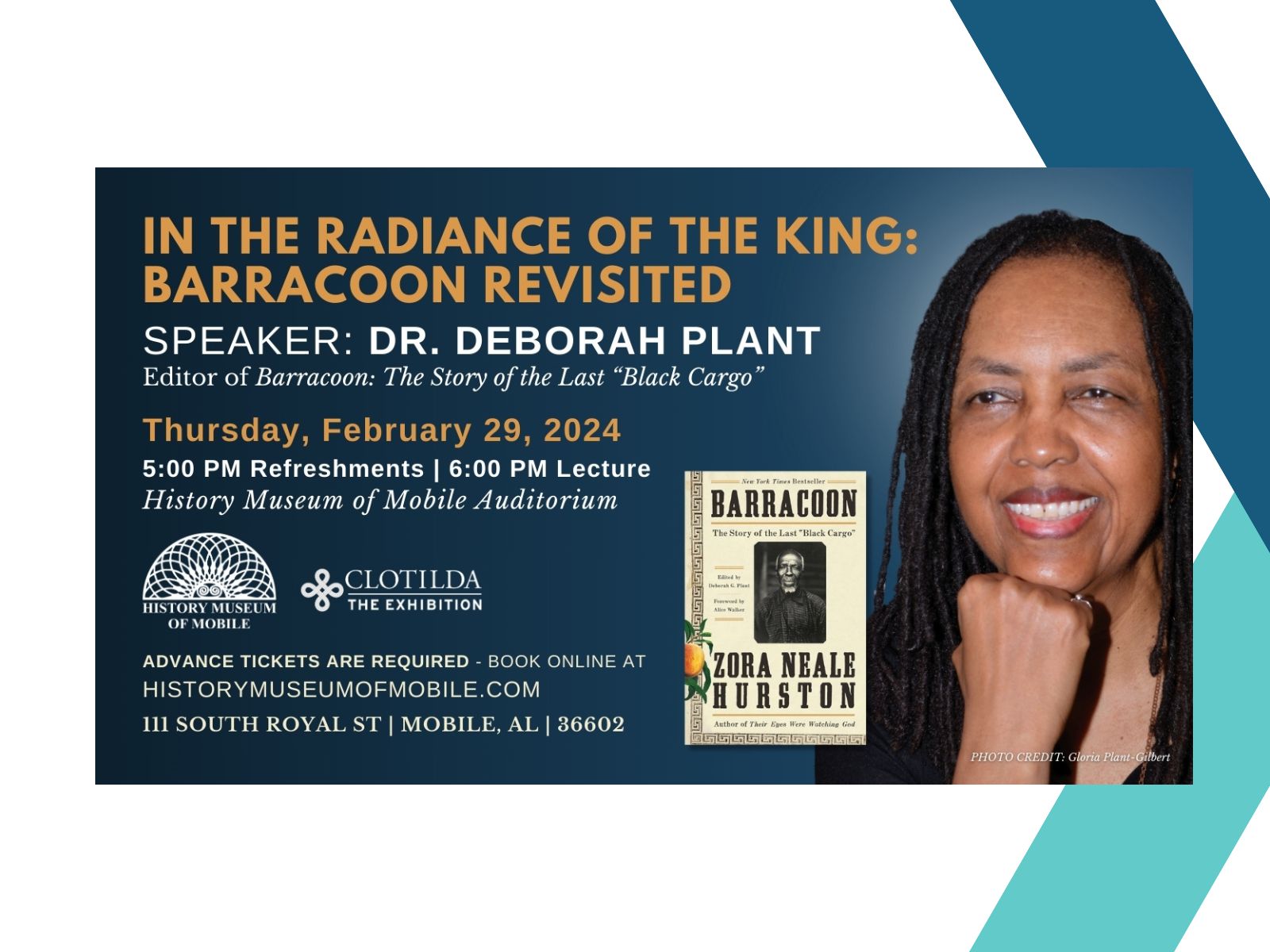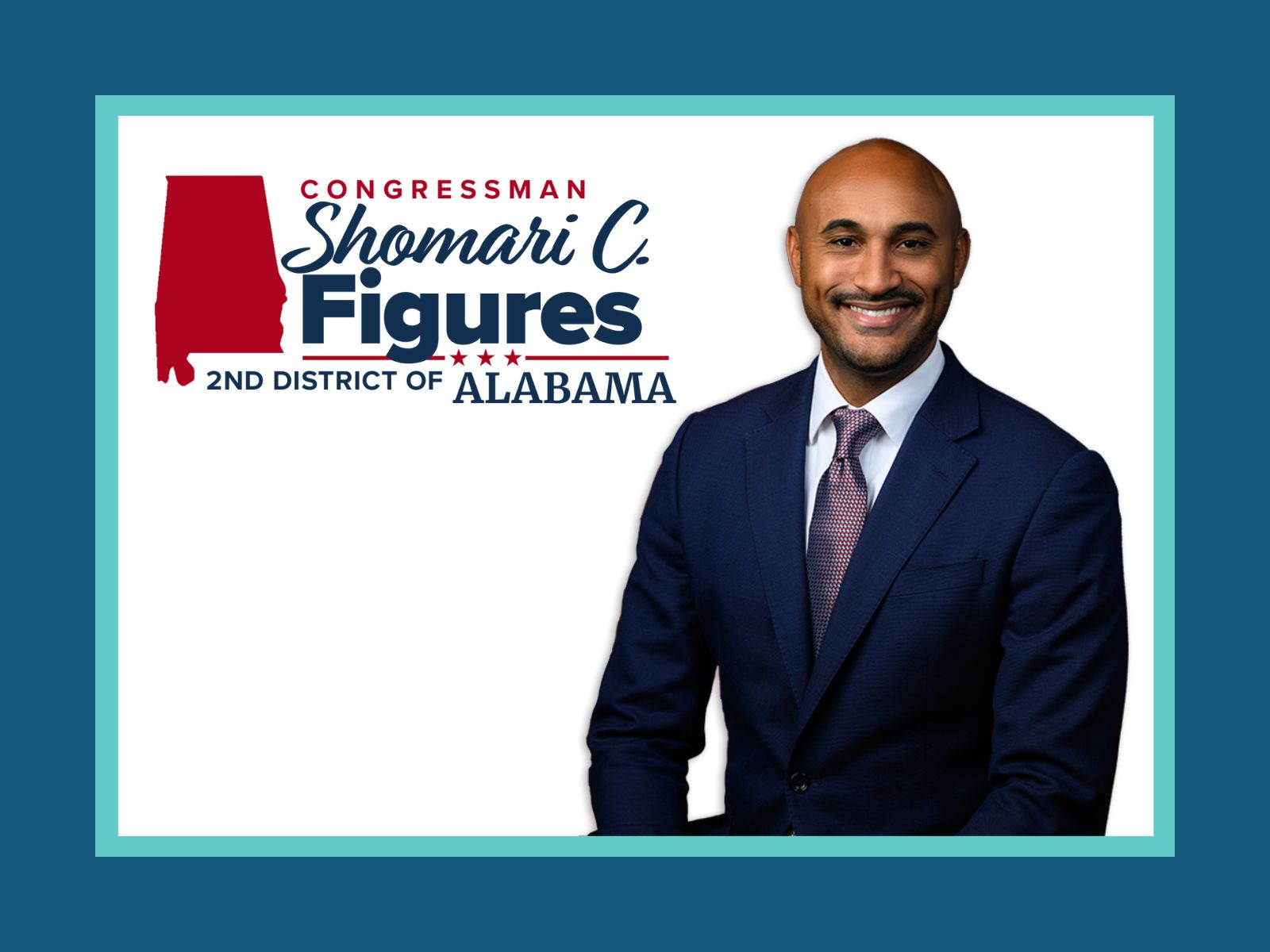A FEBRUARY EVENING LECTURE AT THE HISTORY MUSEUM OF MOBILE WILL FEATURE DR. DEBORAH PLANT, AFRICAN AMERICAN AND AFRICAN STUDIES INDEPENDENT SCHOLAR, WRITER, LITERARY CRITIC, AND EDITOR OF THE BOOK, BARRACOON, BY ZORA NEALE HURSTON
MOBILE, Ala. – A special evening lecture at The History Museum of Mobile on Thursday, February 29 will feature Dr. Deborah Plant, who will deliver her presentation titled, In the Radiance of the King: Barracoon Revisited. The program will begin at 5pm with a reception including light refreshments. Dr. Plant will speak at 6pm. The event is free for museum members and $10 per person for non-members. Advance tickets for both members and non-members are required – no walkup tickets will be available. Reserve advance tickets at historymuseumofmobile.com.
Deborah G. Plant is an African American and Africana Studies Independent Scholar, Writer, and Literary Critic specializing in the life and works of Zora Neale Hurston. She is editor of the New York Times bestseller Barracoon: The Story of the Last “Black Cargo” by Zora Neale Hurston and the author of Alice Walker: A Woman for Our Times, a philosophical biography. She is also editor of The Inside Light: New Critical Essays on Zora Neale Hurston, and the author of Zora Neale Hurston: A Biography of the Spirit and Every Tub Must Sit On Its Own Bottom: The Philosophy and Politics of Zora Neale Hurston. She holds MA and Ph. D. degrees in English from the University of Nebraska-Lincoln. Plant played an instrumental role in founding the University of South Florida’s Department of Africana Studies, where she chaired the department for five years. She presently resides in Florida.
About BARRACOON
From the author of the classic Their Eyes Were Watching God comes a landmark publication – a never-before-published work of the American experience. In 1927, Zora Neale Hurston traveled to Plateau, Alabama, to visit eighty-six-year-old Cudjo Lewis, a survivor of the Clotilda, the last slaver known to have made the transatlantic journey. Illegally brought to the United States, Cudjo was enslaved fifty years after the slave trade was outlawed.
At the time, Cudjo was the only person alive who could recount this integral part of the nation’s history. As a cultural anthropologist, Hurston was eager to hear about these experiences firsthand. But the reticent elder didn’t always speak when she came to visit. Sometimes he would tend his garden, repair his fence, or appear lost in his thoughts. (251) 301-0266 | www.historymuseumofmobile.com | P.O. Box 2068, Mobile, AL 36652
Hurston persisted, though, and during an intense three-month period, she and Cudjo communed over her gifts of peaches and watermelon, and gradually Cudjo, a poetic storyteller, began to share heartrending memories of his childhood in Africa; the attack by female warriors who slaughtered his townspeople; the horrors of being captured and held in the barracoons of Ouidah for selection by American traders; the harrowing ordeal of the Middle Passage aboard the Clotilda as “cargo” with more than one hundred other souls; the years he spent in slavery until the end of the Civil War; and finally his role in the founding of Africatown.
Barracoon employs Hurston’s skills as both an anthropologist and a writer, and brings to life Cudjo’s singular voice, in his vernacular, in a poignant, powerful tribute to the disremembered and the unaccounted. This profound work is an invaluable contribution to our history and culture.
Copies of Barracoon will be available to purchase in the museum gift shop and Dr. Plant will sign books following the conclusion of the lecture.

Stay Connected
Fill out and submit the form below to get regular updates from Mobile Chamber delivered directly to your inbox.






